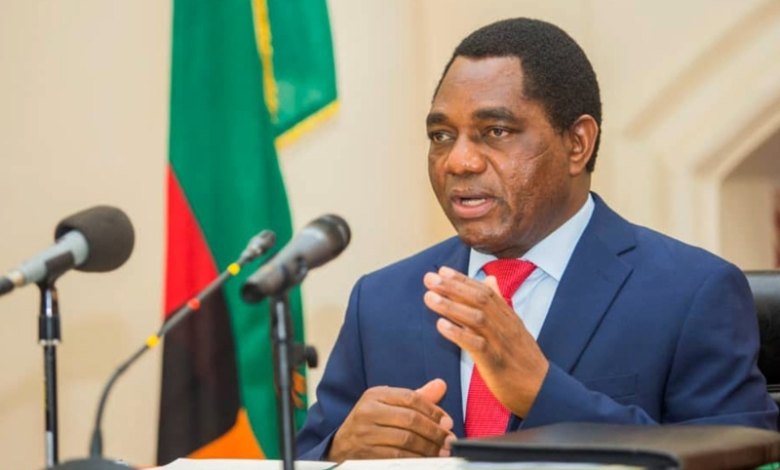President Hakainde Hichilema says his government’s fight against corruption must not kill enterprise and legal businesses.
Speaking when he launched the National Policy on Anti-Corruption on 17 May, President Hichilema assured people who have not committed any crime not to be afraid.
“Don’t be afraid. A lot of people live in fear. If you’re doing the right thing, don’t be afraid,” he said.
The President disclosed that he had taken tips on fighting corruption from his Angolan counterpart and sent the team tasked with the fight to Angola to learn more. The tips included changes to certain laws and institutional aspects to help speed up the prosecution of corruption cases.
Mr. Hichilema said for a long time in Zambia, corruption and enterprise had been put together, leading to the whole system [of fighting corruption] slowing down deliberately, which should not be the case.
“The whole system was slowed down deliberately, and the corrupt began to believe that even under this government, the cases would take over 20 years, and those who believe in the fight against corruption would be long gone, so we had to make changes,” stated Mr. Hichilema.
He reiterated that his government was committed to fighting corruption but that it had had difficulties doing so professionally, quickly, and effectively. He added that the policy was part of the puzzle to help them.
He has also advised investigative and prosecuting agencies against taking matters to court haphazardly, knowing they would not win.
The President said it was not possible for the different agencies to possess all the skills needed to prosecute corruption matters in-house; hence, they must collaborate with other agencies and institutions with the relevant skills.
“Why would you take a matter to court just for formality? Take a matter to court because you know you will win, and it will improve the credibility of the fight against corruption.”
At the same event, Germany’s Ambassador to Zambia, Anna Wagner Mitchelle, said that while asset forfeiture is commendable, it must be accompanied by the prosecution of corruption perpetrators.
“When the evidence is clear, the eventual prosecution of perpetrators, meaning putting them in jail, not only builds public confidence in the fight against corruption, but it also amplifies the needed deterrence,” she stated.
Director General of the Anti-Corruption Commission (ACC) Tom Shamakamba said the new policy emphasizes domestic and international collaboration and partnership and that the ACC would strengthen partnerships with other government agencies to build collective capacity and fight corruption effectively.
Shamakamba also indicated that the ACC would leverage digital tools and data analytics to improve the efficiencies and effectiveness of its anti-corruption efforts, including monitoring the performance of public officials.
In 2022, the government established the Economic and Financial Crimes Court, a division of the High Court, to hear and determine matters relating to economic and financial crimes and corruption.
In April 2024, the National Prosecutions Agency announced that it had recovered US$31 million in a single month from assets forfeited to the state on account of them being adjudged as proceeds of crime.
Main Image: Daily Nation



